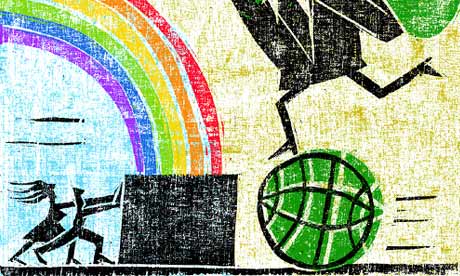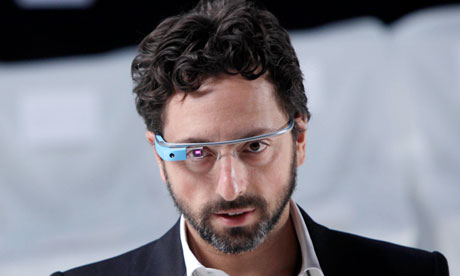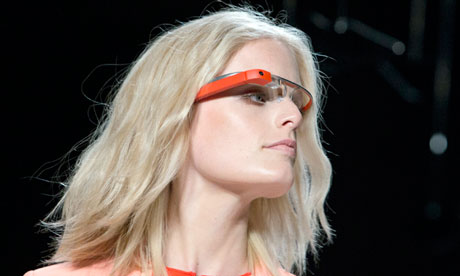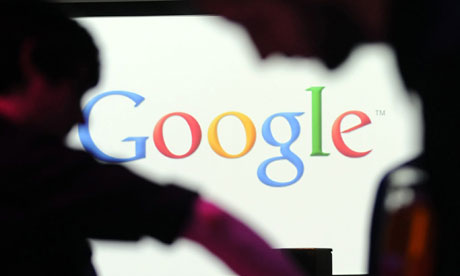When future economists look back on the dawn of the
internet
era, they will marvel that an age of such technological marvel was
attended by a widespread, infantile mania for preventing positive
externalities.
"Externalities" are the economist's catchall term
for the spillover effects experienced by the people who are affected by
others' activities. Most of the 20th century was spent locked in battle
with the corporate vice of externalising negative costs. Companies are
beholden to their shareholders, and so they are meant to save every
penny they can, even when saving that penny might cost the rest of
society several pounds. The classic example is toxic waste: processing
industrial waste before it leaves the factory is a costly proposition,
and so, whenever it is possible to do so, companies have defaulted to
dumping their waste into the wider world. This is a much cheaper option —
for the company.
For the world, it's vastly more costly. After
all, when the offensive sludge is all neatly gathered at the effluent
pipe's head-end, it is concentrated and handy, and can be gathered and
fed into whatever decontamination or sequestration system is
appropriate.
But once the sludge has exited the pipe and is out in
the world, it has to be gathered up before it can be dealt with.
Contaminated coolant can be sealed in barrels at the factory and sent
for secure burial. Once it's dumped in a stream, you have to figure out
how to get it out of the stream before you can clean it up – this is
notoriously difficult.
What's more, streams feed into rivers, and
rivers into oceans, and people drink from them and swim in them and eat
the animals that swim in them and rely on them. What started as a
waste-containment problem has become a public health emergency and an
environmental catastrophe – the company's savings are the world's loss.
So
policy wonks have spent a century thinking about creating the carrots
and sticks necessary to minimise this externalising behaviour. The idea
is to work out a system of fines and punishments that make it
economically irrational to dump sludge, because the savings from doing
so are offset by the penalties for getting caught. Getting this number
right is notoriously hard, because you have to factor in some kind of
multiplier of the penalty that accounts for the discount that rational –
albeit psychopathically immoral – companies will apply based on the
likelihood that they will not get caught.
Virtuous circles
But what about
positive
externalities? Historically, these have been a lot less contentious,
and it's easy to see why. A positive externality arises when you do
something you want to do that also makes life better for someone else.
For example, if you drive your car slowly and carefully to avoid a
wreck, a positive externality is that other users of the road have a
safer time of it, too. If you keep up your front garden because it
pleases you, your neighbours get the positive externality of slightly
buoyed-up property values from living on a nicely kept street.
Positive
externalities — virtuous cycles — are all around us. Your kid learns to
speak because of all the people around her who carry on conversations
and because of the TV shows and radio programmes where speaking occurs
(as do immigrants like my grandmother, whose English fluency owes much
to daytime TV after she came to Canada from Russia).
My flat – on
the top floor, above a commercial building – gets some of the rising
heat from the building below, capturing our downstairs neighbour's
exhaust heat (on the other hand, we provide a positive externality to
them by insulating their roof with our home).
The net is the
natural home of positive externalities. Start with the "network effect" –
the way that adding people to the network creates more value for
existing users of the network (one fax machine is useless, two fax
machines are slightly useful, a billion fax machines are indispensable,
at least, until the web makes them obsolete). Every website that came
along increased the likelihood that new users would find some reason to
join the internet. Every new user that came along increased the
likelihood that someone would make a website that tried to reach that
user.
This is a kind of anti-entropic magic trick, using the
exhaust from one process to create fuel for the next one. The most
famous example is Google's PageRank algorithm, which began when the
company's founders realised that every time a web creator added a link
from one site to another, there was a kind of implied vote for the
linked-to site – when I link to you, I'm implicitly saying that you have
something I think others should see. This citation analysis (a common
practice in academia, where journals who are widely cited are considered
more valuable than less-cited journals; and where journal-articles that
are more widely cited are considered more valuable as well) was wildly
successful, and it showed that there was, latent on the web, an
invisible mesh of authority that could be made visible with the right
kind of analysis.
Google is a case-study in harvesting positive
externalities. It offered a free, voice-based directory assistance
number, and used the interactions users had with its software to build a
corpus of common phrases, expressed in multiple accents and under a
wide range of field conditions. Then it used this to train the
voice-recognition software that powers its Android-based phone-search.
Likewise, it mined all the publicly available translations on the web –
EU documents that appeared in multiple languages, fan-based translations
for subtitles on cult cartoons, and everything else it could find – and
used this to train its automated translation engine, providing it with
the context that it needed to figure out the nuance and sense of
ambiguous phrases.
There are other companies that do well by
harvesting these positive externalities. Facebook provides its users
with a handy platform for socialising, and then – notoriously – mines
their social graph to figure out how to sell things to them.
However,
there's a wide difference between the two companies: much of Google's
business revolves around capturing externalities from things you were
going to make anyway. In many cases, the resources Google mines are
public and remain in place even after Google's finished with them (for
example, anyone can index the web and do the same citation analysis as
Google).
Both Facebook and Google also try to entice the world
into activities that generate externalities. Facebook is a giant
behaviourist experiment designed to tempt you into systematically
undervaluing your privacy, and it uses game-like mechanics to extract
more personal data and more social-graph enumeration from its users.
Google's a little less obvious about its enticements, but clearly,
offering services such as YouTube and Blogger are mostly about figuring
out how to earn money from the exhaust-stream from individual and
corporate creativity. Facebook, and to a lesser extent, Google, try to
claim ownership over your externalities by locking them up in
proprietary walled gardens.
Taking a cut
But back
to our era's defining mania: resentment over positive externalities.
Many people and companies have concluded that if someone, somewhere, is
getting value from their labour, that they should get a cut of that
value. Irish newspapers are paying solicitors to
demand money from websites that link to them,
on the grounds that a website is improved if it contains a reference to
the news, and that improvement needs to be paid for. Many people have
accused Google of "ripping off" the public by indexing content, or
analysing it, or both. Jaron Lanier recently accused Google of
misappropriating translators' labour by using online translated
documents as a training set for its machine-translation engine – an
extreme version of many labour-oriented critiques of online business.
And
take DRM – digital rights management – which is used to restrict the
way you use the media you buy, such as ebooks, videos, and games.
DRM
systems have been deployed to stop people from selling used games, to
stop them lending their ebooks, to stop them from taking DVDs from one
country to another. This is pure positive-externality resentment.
The
reasoning for DRM goes like this: "I sold you this [ebook/game/video]
for the following uses. If you figure out a way to get any more value
out of it, it belongs to me, and you can't have it, until and unless I
decide to sell it to you."
In the pre-digital world, this would
have been laughable. "I sold you that book: if you want to use it to
keep the table from wobbling, you'll have to pay me extra." Or: "I sold
you that game to play in your house. How dare you bring it on holiday
with you?! You owe me!" Or: "That TV was sold to you for the purposes of
watching programmes, not to be used as a white-noise machine to lull
your newborn to sleep, and certainly not to support a pile of
knick-knacks!"
Of course, removing positive externalities also
removes value. Cars are worth more because of the used-car market.
University textbooks command a higher price because of the market for
used textbooks. If either sector managed to kill those externalities, it
would be selling goods that its customers valued less (and would likely
find that they demanded lower prices for them, too).
I was at a
TV DRM meeting once where a representative from the US-led Motion
Picture Association proposed that broadcasters should be able to
selectively block the use of wireless retransmitters – the sort of thing
that lets you have a receiver in the sitting-room that fed a TV set in
your bedroom – because "watching TV in a room other than the one the
show is being received in has value, and if it has value, we need to be
able to charge money for it".
That's the crux of this irrational
fear of positive externalities: "If something I do has value, I deserve a
cut." It's one thing to say that someone who hires you to do a job, or
purchases your product, should pay you money. But positive externalities
are the waste-product of something we were already going to do. They're
things that you have thrown away, that you have thrown off, that you
have generated in the process of enjoying yourself and living your life.
The
mania to internalise your positive externalities is the essence of
cutting off your nose to spite your face. I walk down the street
whistling a jaunty tune because I'm in a good mood — but stop as soon as
I see someone smiling and enjoying the music. I keep my porchlight on
to read by on a warm night, but if I catch you using the light to read
your map, I switch it off, because those are my photons — I paid for
'em!
Worse still: the infectious idea of internalising
externalities turns its victims into grasping, would-be rentiers. You
translate a document because you need it in two languages. I come along
and use those translations to teach a computer something about context.
You tell me I owe you a slice of all the revenue my software generates.
That's just crazy. It's like saying that someone who figures out how to
recycle the rubbish you set out at the kerb should give you a piece of
their earnings. Harvesting positive externalities involves collecting
billions of minute shreds of residual value – snippets of discarded
string –and balling them up into something big and useful.
If
every shred needs to be accounted for and paid for, then the harvest
won't happen. Paying for every link you make, or every link you count,
or every document you analyse is a losing game. Forget payment: the
process of figuring out who to pay and how much is owed would totally
swamp the expected return from whatever it is you're planning on making
out of all those unloved scraps.
In other words, if all latent
value from our activity has a price-tag attached to it, it won't get us
all paid – instead, it will just stop other people from making cool,
useful, interesting and valuable things out of our waste-product.













